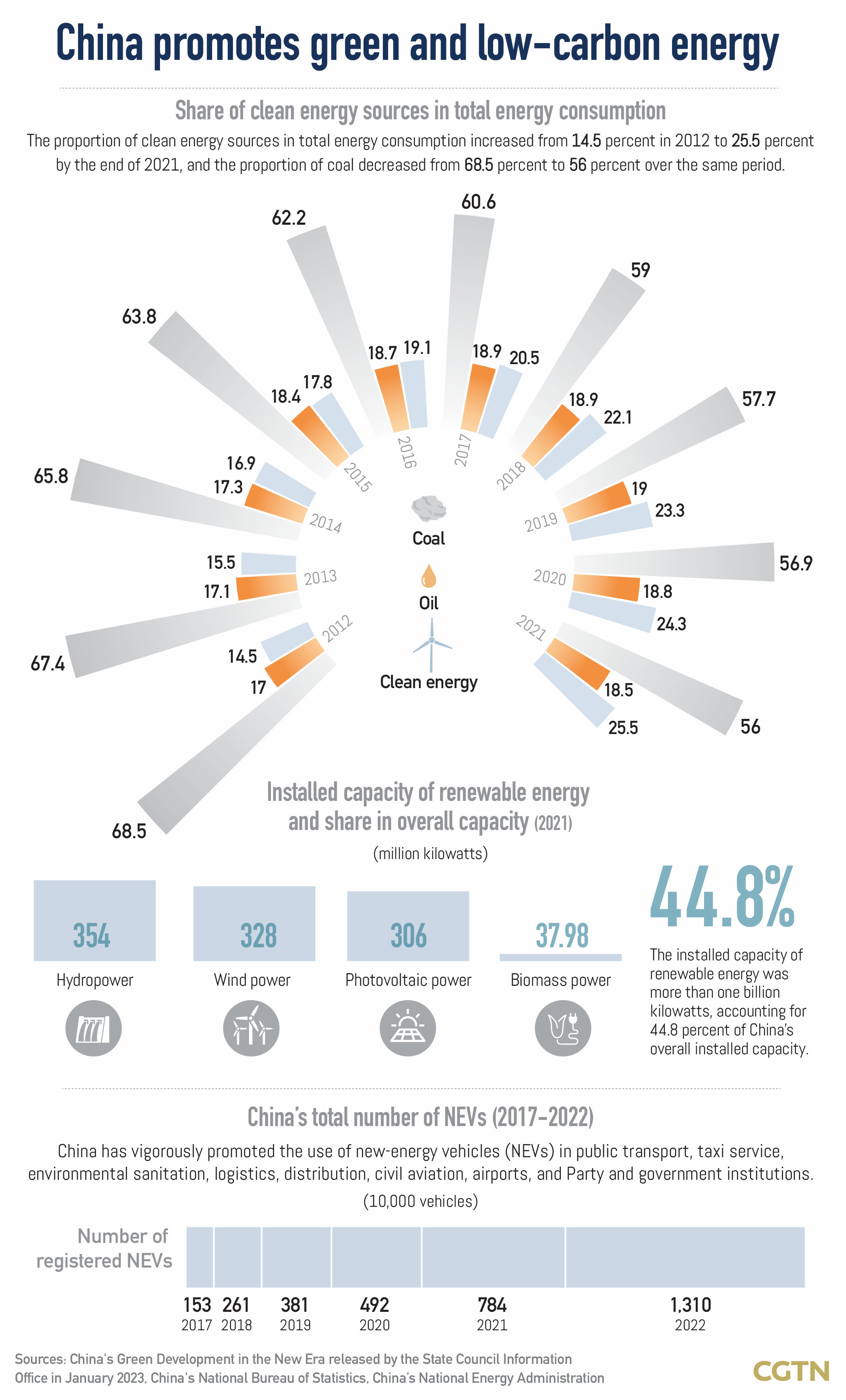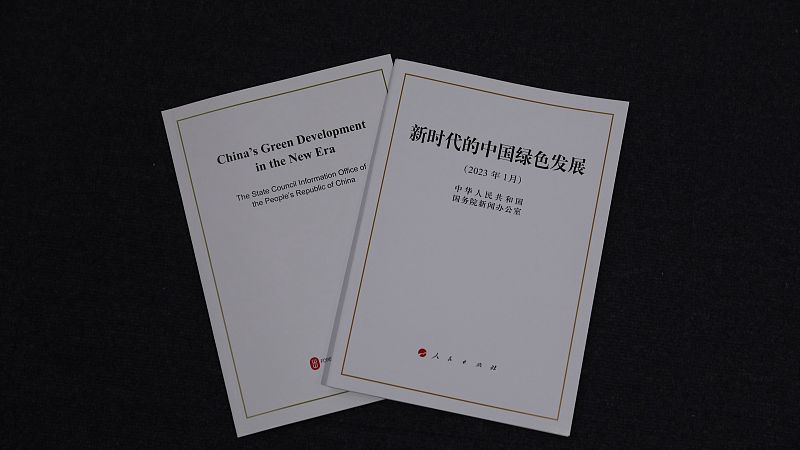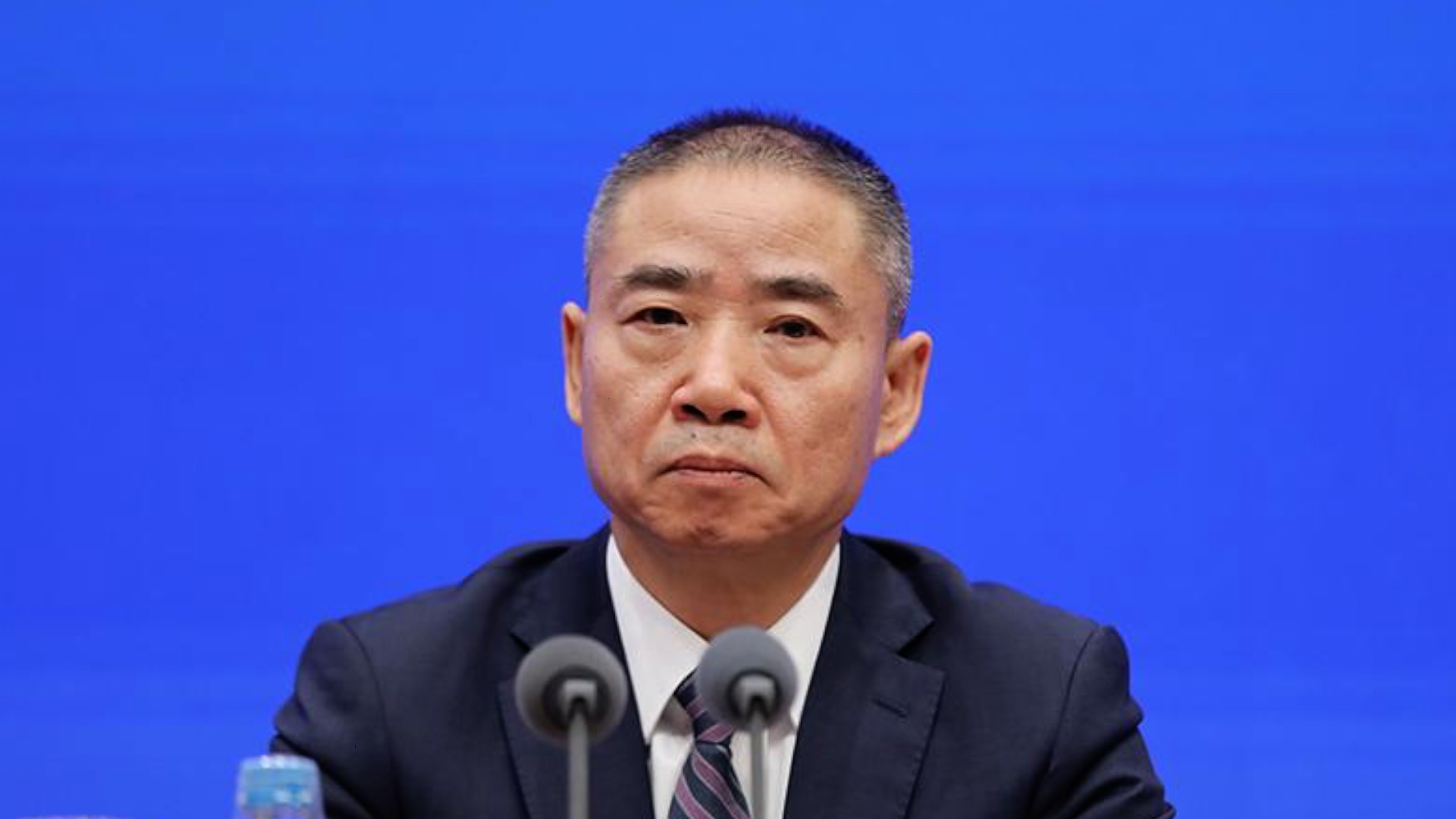Zhao Chenxin, the deputy director of the National Development and Reform Commission (NDRC) has said that human beings cannot survive and develop without energy.
“To achieve green development, we must vigorously promote transformation of energy production and utilization method,” Zhao Chenxin told a press conference on Thursday as China’s State Council Information Office released a white paper titled “China’s Green Development in the New Era.”
China has been speeding up to shape a clean, low-carbon, safe and efficient energy system for the past 10 years, said Zhao, adding that the country has promoted continuous enhancement of energy security capabilities and substantial improvement of green and low-carbon level, providing important support to realize high-quality economic and social development.

Pursuit of clean, renewable energy
Firstly, China enhanced ability to guarantee energy supply. “We adhere to the bottom line of energy security and promote formation of an energy production system driven by coal, oil, gas, electricity, nuclear and renewable energy,” said Zhao.
“According to the data recently released by the National Bureau of Statistics and the National Energy Administration, the supply of raw coal, crude oil, natural gas, and electricity in China has grown steadily with high quality in recent years,” Zhao said and further mentioned that China has also developed renewable energy in the period.
“We continued to expand the scale of installed capacity of wind and photovoltaic power, which have gradually become the main body of newly installed capacity and power generation.”

The white paper titled “China’s Green Development in the New Era” is released by China’s State Council Information Office in Beijing, China, January 19, 2023. /CFP
By the end of 2022, the installed capacity of wind and photovoltaic power generation across the country has exceeded 700 million kilowatts, ranking first in the world, said Zhao. The newly installed capacity of wind and photovoltaic accounted for 78 percent of the country’s total, and over 55 percent of China’s new power generation capacity was added that year, which is a very high proportion.
Moreover, the country is focusing on improving the clean and efficient utilization of fossil energy, promoting the supply-side structural reform of the coal industry and green coal mining, as well as implementing ultra-low emission and energy-saving transformation of coal-fired power plants, said Zhao.
By the end of 2021, the number of China’s coal-fired power units with ultra-low emissions has exceeded one billion kilowatts, achieving an energy-transformation scale of nearly 900 million kilowatts.
Zhao also pointed out that the country launched a campaign to upgrade quality of refined oil products which has reached an advanced international level.
Green transformation of IT sector
China also gained significant outcomes in green, low-carbon transformation of the information technology (IT) sector in the period, said Xin Guobin, Vice Minister of the Ministry of Industry and Information Technology, during the news conference.
The integration of digital and green development has been continuously improved. With rapidly integrated development of digital technology and manufacturing, the numerical control rate of key processes in major areas has been increased from 24.6 percent to 55.3 percent from 2012 to 2021, said Xin.
“China also continued to optimize energy efficiency of new infrastructure. At present, the energy consumption of a single 5G base station has been reduced by over 20 percent, when compared with the initial stage of commercial use. There are 153 national green data centers that have been cultivated, with average power usage effectiveness (PUE) cut to 1.3.”
In the future, coordinating energy security, green and low-carbon transformation, and accelerating construction of a clean, low-carbon, safe and efficient energy system will be a major issue for China, with a long-term goal and direction, said Zhao.
“China will continue to make unremitting efforts to further promote energy revolution, and provide stronger supports for green and low-carbon transformation of the country’s economy and society,” Zhao added.























